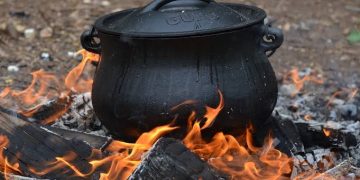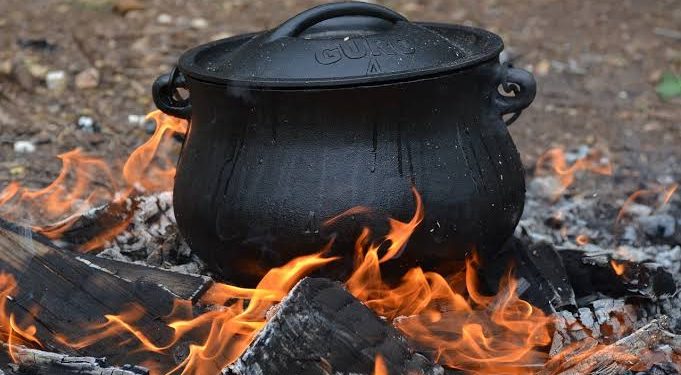By Emmanuel Nduka
National Association of LPG Marketers (NALPGAM) are moaning over poor patronage by customers due to the hike in Cooking Gas, stating that more Nigerians “are being forced to return to coal, sawdust, kerosene, and other dirty fuel” as cheaper alternatives.
The Executive Secretary of NALPGAM, Mr. Bassey Essien who expressed worry at the weekly e-Discourse organised by a leading pan-African forum, Platforms Africa, also warned that the price of cooking gas may rise to N10, 000 per 12.5-kg cylinder (N800 per 1kg) before December, if the Federal Government does not address the recently introduced import charges and VAT.
“The Association is very concerned with the high cost as many Nigerians are resorting to the use of firewood, charcoal and kerosene to cook and the prices of these cooking energy have suddenly gone up.
“The association is interfacing with Government, Stakeholders, producers, importers to see how the situation can be arrested, as well as meeting with the marketers vide moral suasion not to capitalise on the situation and inflict more pains on citizens by increasing the cost of gas in their locations.
“However, they are equally expending huge cost to have cooking gas at their locations. Unfortunately, there is none in sight for now except the supply is increased. NLNG says it has supplied all its production quota into the market.
“The skyrocketing price of gas is our fear and what we are trying to avoid. Early in the year a 20 metric ton of gas was selling for below N5 million, but today same tonnage sell for N10.2 million.
“If government does not address the recently introduced import charges and VAT, the price of cooking gas may as well reach N10,000 for a 12.5kg cylinder. Today the price has risen to N7, 500 and N8, 000,” he said.
He explained further that the cost of cylinders has been on the gradual rise over the years, and that the cylinder ownership structure in the country ensures that owners are in charge of their cylinders
“We have about 2 cylinder manufacturing plants in the country and all the elements of production are imported, note the import implications
“The cylinder ownership structure in the country ensures that owners are in charge of their cylinders. Cylinders expire on the 15th year of usage from the manufacturing date.
“Because of the high replacement cost, consumers buy what they can afford. This has equally encouraged the proliferation of substandard cylinders in circulation.
“The decade of gas plan and a lot of feats recorded by the Federal government in the gas sector is being threatened by this crisis and no time is better than now for the government to save the ship of its gas achievements from sinking,” the ES added.



































